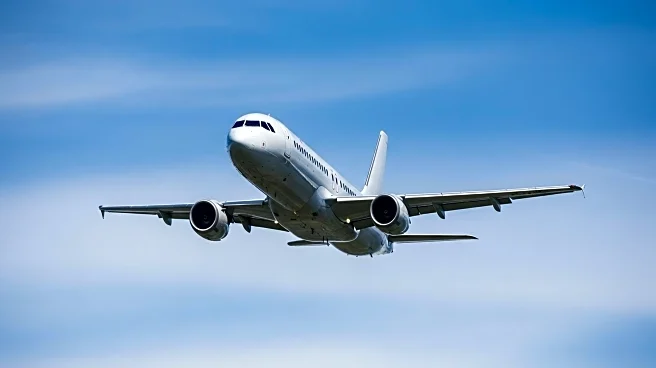What's Happening?
Etihad Airways has successfully launched flights to four new destinations, including Krabi, Thailand, Sumatra, Phnom Penh, and Addis Ababa, marking a significant expansion in its global network. The inaugural flights to these destinations were sold out, indicating strong demand and supporting the airline's ambitious growth plans. This expansion is part of Etihad's strategy to reach over 125 destinations by 2030, facilitated by the addition of the Airbus A321LR to its fleet. The new aircraft allows Etihad to serve emerging markets with greater flexibility and efficiency, offering premium cabins and enhanced services.
Why It's Important?
The expansion of Etihad Airways' network is significant for the airline industry, as it demonstrates the carrier's commitment to increasing global connectivity and strengthening its position as a leading airline in the region. By introducing new routes, Etihad is tapping into underserved markets, potentially boosting tourism and economic activity in these areas. The use of modern, fuel-efficient aircraft like the Airbus A321LR aligns with industry trends towards sustainability and operational efficiency, which could influence other airlines to adopt similar strategies. This growth also offers Etihad Guest members new opportunities to earn rewards, enhancing customer loyalty and engagement.
What's Next?
Etihad Airways plans to continue its network expansion, with additional destinations such as Kabul, Damascus, Palma de Mallorca, and Zanzibar set to launch in the coming months. The airline's Extraordinary Challenge, which encourages members to visit new destinations for rewards, will run until May 2026, potentially increasing passenger traffic on these routes. As Etihad pursues its goal of reaching 125 destinations by 2030, stakeholders can expect further investments in fleet modernization and service enhancements, positioning the airline for continued growth and competitive advantage in the global market.
Beyond the Headlines
Etihad's expansion strategy may have broader implications for international travel and tourism, particularly in regions like Southeast Asia and Africa. By connecting more cities, the airline is fostering cultural exchange and economic partnerships, which could lead to long-term benefits for local communities. Additionally, the introduction of premium services on narrowbody aircraft reflects a shift in industry standards, potentially influencing other carriers to innovate and improve passenger experiences on shorter routes.










